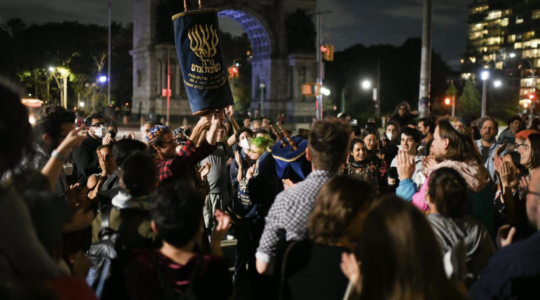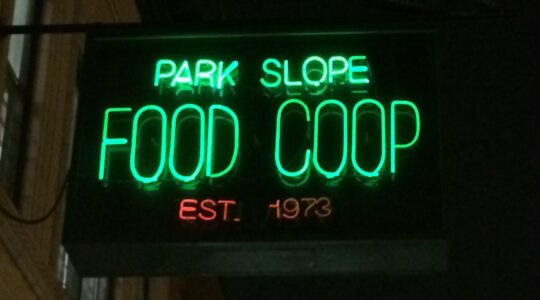As he works to cobble together a coalition government, Ehud Barak signaled the role he believes religion should play in the Jewish state when he included in his One Israel bloc a Modern Orthodox party, Meimad.
“We believe there is no contradiction between a religious state and a democracy in Israel,” said Rabbi Yehuda Gilad, a dean of Yeshiva Ma’ale Gilboa and a member of Meimad.
Meimad’s goals for the Jewish state were illuminated last year in a proposal it developed with Labor’s Yossi Beilin. It included legislation permitting civil marriages, and changes to allow increased private transport and cultural events but curbed commercial activity on the Sabbath.
In an interview last month during a visit to New York, Rabbi Gilad said that after his party joined One Israel, “many non-religious people came up to us and said it was the first time they could identify with rabbis. Until now, they had believed that if you were a dati [observant Jew], you were right wing, against the peace process and for religious coercion. So many secular people felt intimidated by the religious parties. … The vast majority of Israeli society want a less coercive Jewish state.”
Meimad had been an educational movement after failing to win a seat in the Knesset in 1988. But the rabbi said its leaders came to understand that it was “very difficult to change anything in Israeli society without political clout.”
That is why it joined with the Labor Party and Gesher to form One Israel, he said.
Under its coalition arrangement, Meimad was to have the 17th, 33rd and 36th slots on the One Israel list for seats in the Knesset. Rabbi Gilad, a leading figure in the religious kibbutz movement, had the 33rd slot but because One Israel received enough votes to garner only 27 seats, he will not become a member of the Knesset. The arrangement also called for a Meimad member who is not a member of the Knesset to be appointed to the cabinet, perhaps as education minister. Meimad leaders said they pointedly did not want to run the Religious Affairs Ministry.
Rabbi Michael Melchior, chairman of Meimad’s executive committee, told the Jerusalem Post: “What we’re saying is, ‘You take back from us the monopoly over religion because Judaism belongs to everybody, not just Orthodox Jews.’ … What we want is to offer our kind of Jewish-oriented perspective in foreign policy, education, health and social issues. We want to make the state more Jewish, while putting an end to coercive religious legislation which simply creates walls of hatred between people rather than bringing them closer to the Almighty.”
Room For Religion At The Table
As he works to cobble together a coalition government, Ehud Barak signaled the role he believes religion should play in the Jewish state when he included in his One Israel bloc a Modern Orthodox party, Meimad. “We believe there is no contradiction between a religious state and a democracy in Israel,” said Rabbi Yehuda Gilad, […]
Advertisement




